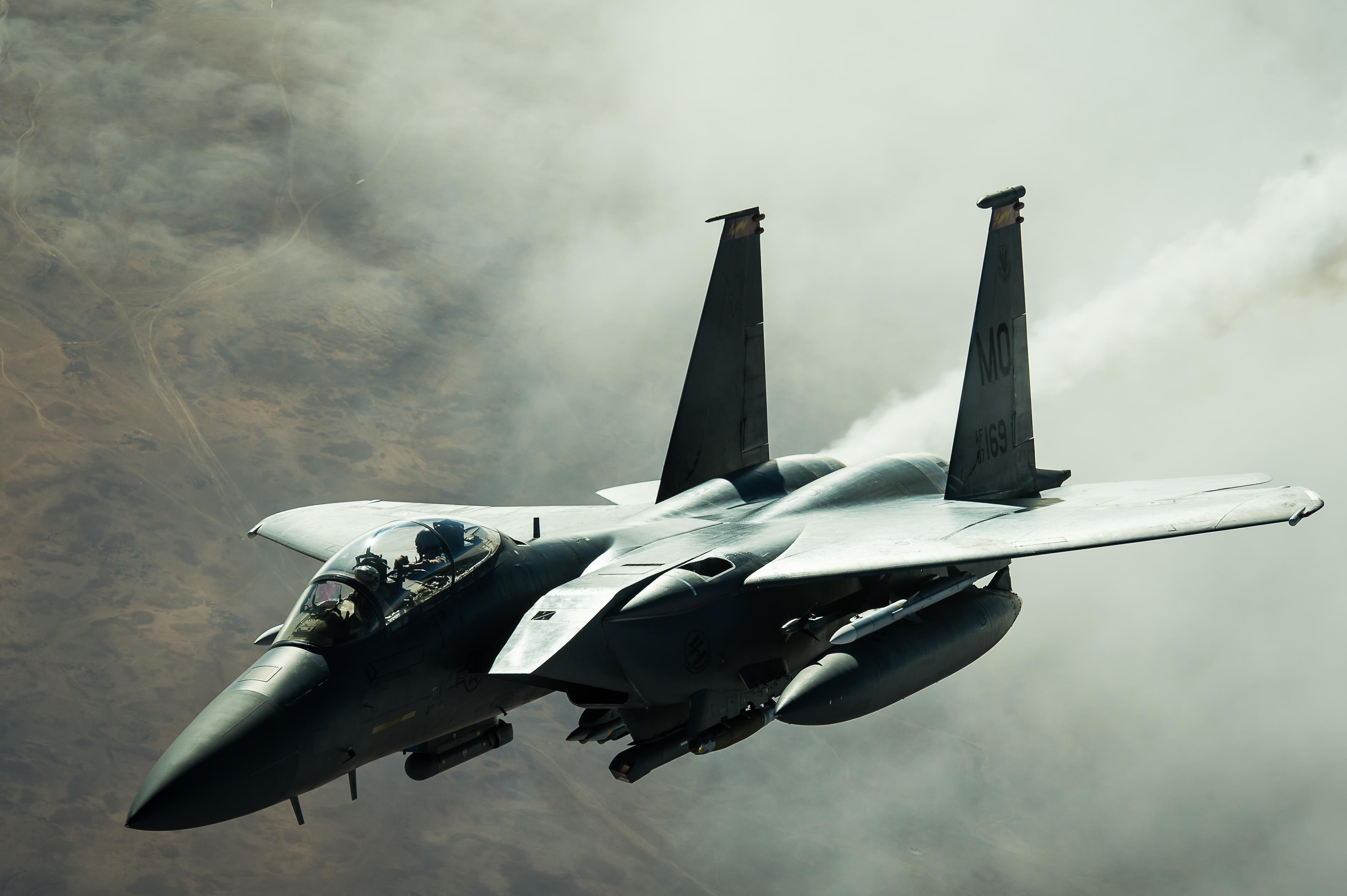
Retired Army Gen. David Petraeus, speaking during the International Institute for Strategic Studies Manama Dialogue in Bahrain on Saturday, outlined five lessons learned from fighting Islamic extremists that should guide future US policy. Here, an F-15E Strike Eagle disconnects from a KC-10 Extender after receiving fuel over Iraq Dec. 5, 2016. USAF photo by SrA. Tyler Woodward.
The “battle after the battle” in Iraq, or the “competition for political power and resources after the defeat of ISIS,” may be more difficult than the defeat of ISIS itself, retired Army Gen. David Petraeus said Saturday, the same day the Iraqi government declared victory against the terrorist organization.
Additionally, the US should be asking itself what lessons it should be taking from 16 years of fighting Islamic extremists in Iraq and Afghanistan, Petraeus said Saturday at the International Institute for Strategic Studies Manama Dialogue in Bahrain.
Petraeus, who served as the head of US Central Command from October 2008 to June 2010, and as the commander of Multinational Force Iraq from February 2007 to September 2008, said there are five lessons that should guide US policy making and actions.
First, he said, it is “increasingly apparent” that ungoverned spaces from West Africa to Central Asia will be exploited by Islamic extremists who want to establish sanctuaries from which they can launch terrorist attacks. “It is thus not a question of if, it is a question of when” such areas will be exploited, he said.
Second, he said, the US must take action in such situations, rather than dealing with the problem “in the way Washington sometimes tries to do: admiring the problem until it goes away.” In this case, Petraeus said, “Las Vegas rules don’t apply: What happens there doesn’t stay there.”
Third, he said, it is clear that US leadership is “imperative” in taking action, though America should only do what is absolutely necessary and should work with as many partners as possible, particularly those from the Islamic world.
Fourth, he said, the approach the US and a coalition pursues should be a comprehensive civil-military one, not just a counterterrorism approach. “We can’t drone strike or Delta force raid our way out of this problem,” he stressed.
And finally, this is a “generational struggle,” said Petraeus, so the US may have to be involved for extended periods of time, and participation should be governed by the actions on the ground, not by timetables.
“The US role has never been more important,” he added.
In a later speech, UK Defense Secretary Gavin Williamson reiterated that defeating terror requires strong partnerships, and warned that ISIS does “not need to hold territory in order to wage war” or to “bring terror to our countries, for they will disperse, move to new battlefields, seek ungoverned spaces, and bring torture, depravity, and misery with them.”
Also at the IISS Manama Dialogue, leaders and experts from several Islamic countries expressed concern about the possible reactions to the decision by President Trump to recognize Jerusalem as Israel’s capital.
“This is going to give oxygen to the lost souls,” Saudi prince Turki Al Faisal said through an interpreter.
Iraqi Foreign Minister Ibrahim al-Jaafari said through an interpreter that it is a “bad decision” that will have negative repercussions.
“I think that this is a step towards war,” he said.
Yenny Wahid, an Indonesian Islamic activist and politician, called it a “reckless decision,” and noted that there had already been demonstrations in Indonesia as of Saturday.
“This will be a platform used by the radical groups to recruit more people to their cause,” she said.